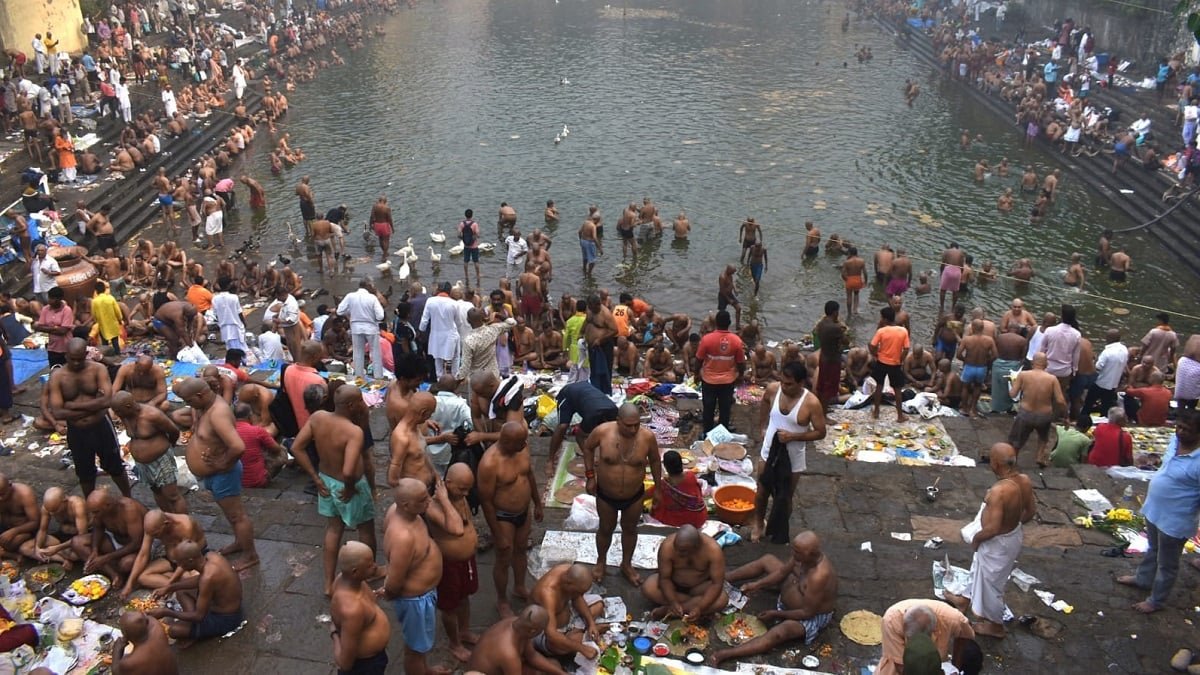Mumbai: Hindus will observe Mahalaya Amavasya today (October 2) to honour and remember their ancestors. Mahalaya Amavasya, also known as Sarvapitri Amavasya, Pitru Amavasya, or Pitra Moksha Amavasya, is the last day of Pitru Paksha, the fortnight dedicated to ancestors.
Pitru Paksha began on Shraddha Purnima or full moon day in Bhadrapada, corresponding to September 17. The last day, Sarva Pitru Amavasya, ends in Ashwina month, corresponding to October 2. The period is also called Shradh Paksha as families perform Shradha for the peace of the souls of their departed relatives. Mahalaya Amavasya or Sarvapitri Amavasya is special because it is a day when families can conduct Shraddha for deceased family members, regardless of their specific death anniversary or tithi.
It is believed that offering of Tarpan and Shradha ensures that the souls of the departed attain moksha or salvation. A state of moksha relieves them from suffering in the other world and they bless their descendants with happiness and prosperity. Failure to propitiate the souls of the departed can cause Pitru Dosha, causing ill health, financial problems, and delays impediments in work and family life.
Tarpan and Shradha on Mahalaya Amavasya also include asking for forgiveness for any harm done unintentionally to the dead person. It is believed that Karna, the estranged brother of the Pandavas, who was killed in the great war, came back to earth during this period to perform Shradha for his relatives to find the peace that was eluding his soul after death.
“Tithi Shradh is done annually on a person’s death anniversary. However, Mahalaya is for everyone, including those who do not remember the exact tithi or time of the death of a relative,” said Nachiket Kojarekar Guruji, a priest who guides families during the rituals.
Kojarekar said Maharashtrians do the rituals at home, though other communities like Gujaratis and Marwaris do it outside a temple. In Mumbai, the Banganga Tank in Walkeshwar is a popular site for rituals like Tarpan or water offerings. Charity, feeding of holy men, and the destitute are other observances for the day. Temples offer Sadhu Bhojan or feeding of ascetics and Gau Seva as rituals. “I believe it is always better to perform rituals at home as you get maximum benefits from the prayers,” added Kojarekar.
The day after Mahalaya Amavasya marks the onset of the Navratri and Durga Puja celebrations in West Bengal. The day of Mahalaya is regarded as the beginning of the festive season and the arrival of Goddess Durga on earth. Navratri starts on October 3, the first day of the Shukla or bright period of Ashwin month. Durga Puja will begin with prayers on Maha Panchami (fifth day) evening on October 8 and Maha Shasthi on October 9. The festival will end on Dashami or Dussehra, the tenth day, on October 12.




